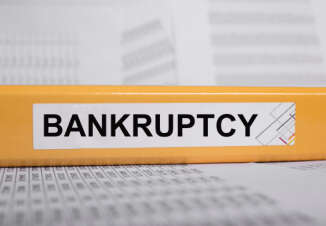The content on this page is accurate as of the posting date; however, some of the offers mentioned may have expired.

Bankruptcy is a process of the federal court which tends to entrepreneurs and individuals repay their obligation that is governed by the Chapters 13 and 17 of the bankruptcy court. When you opt to file or declare a bankruptcy, all your creditors are automatically prohibited from collecting the debt without the court approving it.
There are two kinds of bankruptcies; the liquidation and the reorganization bankruptcy. Liquidation is covered under the Chapter 7 of the bankruptcy law where it allows the assets to be sold off or liquidated to pay all your dues. In liquidation bankruptcy, your creditors might not be running after you but your bankruptcy will be reflected on your credit history for ten years and may be turned down for loans that you may be applying for.
The reorganization in the other hand is mostly applied for individuals. A repayment proposal is filed before a bankruptcy court with several payment schemes proposed; some debts should be fully paid, some with a certain percentage from the original debt while the others remain to be unpaid. It usually takes three to five years before the payment are fully made.
While there are some debts which can be left unpaid, here are the obligations that should always be settled when bankruptcy is declared:
- Alimony and child support
- Majority of student loans
- Penalties incurred due to crimes committed or a simple breaking of the law like traffic tickets
- Indemnity for a personal injury inflicted to other people due to intoxicate driving
- Debts which are intentionally or unintentionally unlisted on the bankruptcy papers.
So if you are trying to get away from some obligations, you can't.
The court has all the power to give some restrictions when you are under a repayment period. It has the power to restrict and direct how you should spend your money. In some cases, it is the court which makes the payment to your creditor on your behalf.
This very scary thing could be prevented with this one secret - wise money management. As much as possible, shop for only the things you needed. Unless it is not too important, never use your credit card on impulse buying - save it for emergency purposes. Don't buy properties like a house if it would mean giving up on your last hundred thousand bucks savings. A lot of people are actually guilty in this - never ever allow yourself to incur a joint debt with someone who has or had some bad paying habits for you'll end up paying for all his debts.





